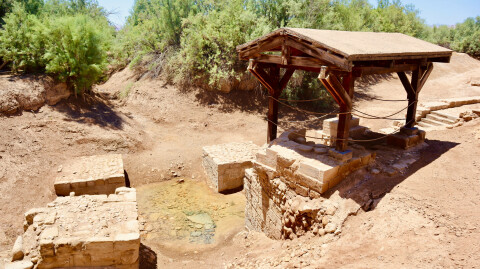TLDR: The “Why is this happening to me?” is an important question, but one for which there are often no good answers. In this blog, I encourage you to ask a different set of questions when confronted with sufferings of any type. Please read on for more.
Every few years, I come across the same question, “Why does God allow suffering to happen to good people?” Another, more Catholic version of this question reads, “Why does God punish good people?” The sentiment behind these questions is one of unspeakable unfairness. It is not fair that a good, young, Christian, who is involved in church, generous with their money, attentive to the needs of others, and, in addition to these attributes, a good parent, sibling, and friend, should be afflicted with sudden illnesses that wage unremittent war against their bodies. We all can think of people who are leading what we consider evil lives who seem to be doing great. In fact, they are healthy as rocks, busily spreading their very unique brand of unhappiness to all who have the misfortune of knowing them. Yet, countless people we see as more deserving of health and happiness are suffering the degradations of illnesses and pain. It is just not fair.
There are several answers to these questions, the pastoral and the theological. The pastoral response is the following: It is in fact unfair; we all love this parishioner, and it is painful to see what they are dealing with. Let us continue to pray for healing, endurance, peace of mind and heart, and the support of attentive caregivers. God suffers with those who suffer, and this is not a punishment. God loves us and will give us the ability to cope and heal. Let us not lose hope but place our grief at the foot of the cross, and Christ will do the rest. Let us surround our loved ones with care and commend their healing to God.
There is a theological answer for this question as well, but before, let me give you an atheist’s response in the form of a joke from Ricky Gervais. “A Jewish victim of the Holocaust arrives in heaven and in a conversation with God tells an inappropriate joke about his experience. God says, “that’s not funny!” to which the man responds, “I guess you had to be there!” Which is exactly the point for Gervais. If there truly was a God, he would have done something to stop the Holocaust, but he wasn’t there because he really doesn’t exist. What happens to us is the result of defective biology, natural disasters, or plain inhumanity. We are all alone in this universe and there is no happy, all-you-can-eat restaurant, in a place called Heaven or Nirvana.
Christians believe that we are born broken, and we live in a broken world. Paul believes that the whole creation has been groaning in labor pains, until the coming of Jesus. “Not only the creation, but we ourselves, who have the first fruits of the Spirit, groan inwardly while we wait for adoption, the redemption of our bodies.” (Romans 8:22-24). We live in broken systems that often fall apart. We inherit broken genetic histories that are present in our DNA from the moment of our birth. Some of us are born with a predisposition to addiction, some inherited histories of mental illness, some have thyroid conditions that affect all sorts of body functions, some develop severe allergies early in life, etc. It is unfair and undeserved, but many of us are born with a deck stacked against us.
In addition to this, we live in communities affected by years of human corruption for which we are not responsible. A secretive backroom deal leads to the release of tons of poisonous substances into the air we breathe. Construction lobbies weaken building regulations and now we live in places not equipped to deal with major hurricanes. Lack of political foresight and planning leave entire communities unprepared to deal with grave fires. Food additives and high fructose add-ons make our food taste better and irresistible, while leading to hundreds of risks to our health. Under-investment in healthcare leaves entire communities suffering from pandemic-level depression and anxiety. Etc. The truth is that human corruption and greed have paid more attention to multinational bottom lines than to the viability, health and welfare of entire populations and of our planet. What is happening to our health is not God’s fault, and it is not a punishment for our sin. In many cases, we are the victims of broken systems who often place profits over people. Now, to be fair, our decisions have consequences, and we often chose poorly, but God does not use illnesses to show his displeasure with us. This is out-of-mode theology.
My job in this blog is not to defend God, because you defend God the same way you defend a ferocious bear, by staying out of the way. God needs no defense. I do want to change this “Why?” question to a more helpful and faithful question, “What?” The why question leads to inadequate answers. I believe a better question is, “What are you telling me through this illness, Jesus of Nazareth? What lesson do you want me to learn? What changes do you want in my life, so I may lead a better, healthier life? What will you have me do now that my life has changed this way?” Etc. God is on the side of those who suffer, “We know that all things work together for good for those who love God, who are called according to his purpose.” (Romans 8:28).
Now let me leave you with some of the most hopeful words of Scripture, “Who will separate us from the love of Christ? Will hardship, or distress, or persecution, or famine, or nakedness, or peril, or sword?... No, in all these things we are more than conquerors through him who loved us. For I am convinced that neither death, nor life, nor angels, nor rulers, nor things present, nor things to come, nor powers, nor height, nor depth, nor anything else in all creation, will be able to separate us from the love of God in Christ Jesus our Lord.” (Romans 8:35-39).
May our Lord continue to bless you,
Fr. Roman+





